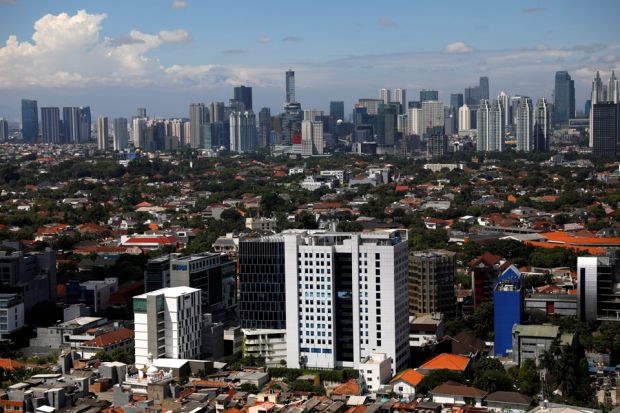Relocation of Indonesia’s capital likely to require large infrastructure investment
Indonesia’s decision to relocate its capital may face environmental roadblocks and will require a substantial amount of infrastructure investment, said analysts from Fitch Solutions.
The analysts cited early estimates by the Indonesian government, which mentioned that construction of the new capital will cost about 466 trillion rupiah (US$33 billion).It is also expected to take three to four years , with the shift planned for 2024 onwards.
These projects are expected to be funded by a mixture of fiscal spending , foreign direct investment and public-private partnerships (PPP). In particular, analysts said that investments via China’s Belt and Road Initiative (BRI) will play an important role in project financing. This comes as the Indonesian government has already offered several projects in North Kalimantan, including the construction of hydropower plants, to China.
As the new capital sits on 180,000 hectares of government-owned land, analysts said that it would be a positive point for the implementation of future infrastructure and development projects as land acquisition issues will be reduced.
Analysts also anticipate opportunities in Balikpapan and Samarinda as well, due to spillover effects of the new capital on the development of these two cities.
The area is currently served by existing infrastructure such as the Balipapan-Semayang Port and the Sultan Aji Muhammad Sulaiman Airport in Balipapan, but analysts believe these facilities will be upgraded and expanded over the next decade to cater to an expected increase in population and economic activity in the region.
Additionally, as the location of the new capital sits on primarily undeveloped land, construction will almost certainly require deforestation. Besides that, the potential use of coal-power plants brings about environmental and pollution concerns. As such, analysts believe that in the absence of advanced storage technology, a mixture of coal and renewable energy projects will be implemented.
They also believe that the planned move will eventually happen, as it will move the country’s seat of government to a location that is closer to the geographical center of the archipelago and promote development in the provinces of Kalimantan.
That being said, analysts foresee that the proposed timeline will probably be stretched as the implementation of less environmentally friendly projects are likely to face strong political opposition and resistance from local communities.
Taking all these into account, the analysts emphasised that Jarkata will remain an important centre for business and finance, continuing to create opportunities for civil and municipal engineering.
The Indonesian government has so far announced that a total of 571 trillion rupiah (US$4 billion) will be set aside for development projects in Jakarta aimed at improving the city’s infrastructure.
This comes as Jakarta suffers from chronic traffic congestion contributing to air pollution and a loss of man-hours and is also sinking at a rate of more than 10 inches a year, due in part to infrastructure deficiencies. Consequently, analysts expect heavy investments in urban transportation and anti-flood infrastructure.
Analysts also pointed out that out of 379 projects in the planning and construction stages , 91 are projects in Java, with the pipeline expected to increase over the next decade with the the government’s planned investments in Jakarta.


 Thailand
Thailand




